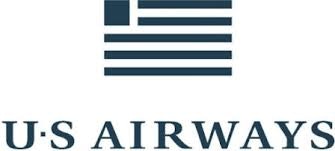The industry is taking its seasonal dive. Stock prices are dropping for US Airways Group, Inc. (NYSE:LCC), Delta Air Lines, Inc. (NYSE:DAL), and United Continental Holdings Inc (NYSE:UAL). This brief essay will try to discern the future outlook for the industry, and search for the one company that’s better prepared for takeoff after the low season.
Flying high

US Air has suffered from the last economic recession, but revenue and income were kept on the positive side. Performance is expected to improve with the recent merger, as both companies complement each other. Also, structural reforms have allowed cost reduction, and a new tax plan is expected to lessen operating losses.
When looking at fundamentals, US Air is trading at five times its earnings, well below the industry’s average. Operating margins remain positive, and several measures have been taken by management to keep it that way. Also, the merger has raised the firm’s competitiveness in both domestic and international markets. Hence, it is recommended to buy this stock because the company promises to battle competition while increasing cash volumes.
Flying still
Future prospects for Delta Air Lines, Inc. (NYSE:DAL) depend heavily on the industry’s performance. Since the Great Depression, the company has increased revenue and reduced debt. Also, the firm is the leading operator in New York and Atlanta, two of the most important U.S. airports, and has heavily raised its presence at London’s Heathrow. Additionally, management holds leverage over salary negotiations since the unionization level is low.
Fundamentals indicate Delta Air Lines, Inc. (NYSE:DAL) is trading at a premium similar to US Air, however, operating margin and net income are lower. Further, the firm has been consistently driving down debt and raising revenue. But, cash flow has not found a steady upward trend due to the industry’s instability.
In all, Delta Air Lines, Inc. (NYSE:DAL) stands at a middle ground between US Air and United, meaning the company has lower risks than United, but its fundamentals do not match. Last, the industry’s short-term uncertainty requires a well-proven management team. Until management puts the firm onto a solid all around trend, it is recommended to hold shares.
Flying low
Since the 1990s, United Continental Holdings Inc (NYSE:UAL) has faced many up and downs. Last year, the company posted a net loss of $723 million, and this year profit is expected to be short due to salary increments. On the upside, management has focused on improving on-time arrivals and average occupancy rates.




